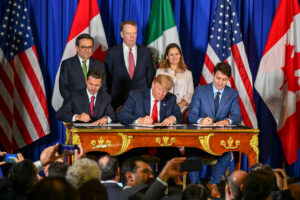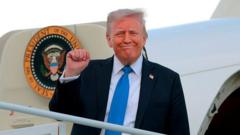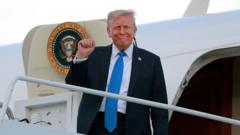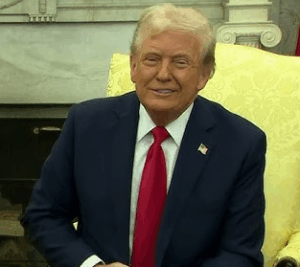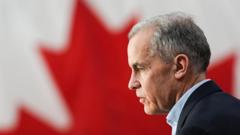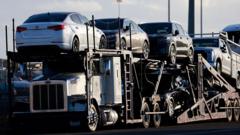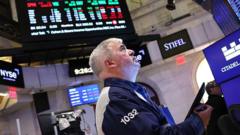Mattel and Ford are preparing to increase product prices in the U.S. market due to rising tariffs from the Trump administration, which are affecting their costs and sales forecasts.
Mattel and Ford to Raise Prices Amid Rising Tariffs

Mattel and Ford to Raise Prices Amid Rising Tariffs
Mattel and Ford signal price increases as tariffs on imports from China impact costs.
Mattel, the maker of Barbie, announced plans to raise prices on certain toys due to escalating tariffs imposed by the Trump administration, which have increased operational costs significantly. The company is also indicating it will reduce its reliance on Chinese manufacturing in light of these trade policies.
As part of the tariffs, which range as high as 145% on goods coming from China, Mattel expects to cut the proportion of its products imported from China down to below 15% by the end of the next year, down from around 20%. The company noted its U.S. sales, which account for around half of its global toy revenue, pose a challenge in predicting consumer spending during the critical holiday shopping season.
Simultaneously, Ford has projected a staggering $2.5 billion increase in its costs due to tariffs affecting Mexican and Chinese imports. Despite these setbacks, the automaker has managed to mitigate approximately $1 billion of that burden through various strategies, including rerouting vehicle transports from Mexico to Canada. However, Ford has withheld its annual earnings forecasts, indicating the uncertainty surrounding the current trade landscape.
The effects of these tariffs have resonated beyond Mattel and Ford, as several major companies, including Intel, Adidas, and Procter & Gamble, have expressed concerns about the impact of tariffs on their pricing structures and overall business operations. Intel's CFO highlighted the potential risk of an economic downturn linked to the unpredictable trade policies, while Adidas warned customers could see price hikes on notable sneaker models.
In response to the tariff situation, Trump acknowledged that American children may receive fewer toys, suggesting the burden may disproportionately fall on consumers. Meanwhile, the President maintains that China is bearing a greater share of the detrimental economic effects from these trade tensions.


